Equality eludes democracies old and new
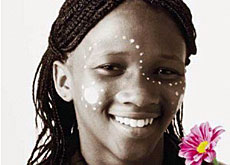
More than 80 Swiss and South African women have been meeting in Bern to share experiences about female equality in their home countries.
Although there are many differences between Switzerland and South Africa, delegates agreed that the problems faced by women in the two countries were very similar.
The two-day conference – which ended on Friday – was organised by the South African Embassy in Bern, along with several Swiss partners, to mark National Women’s Day in South Africa.
It is also one of the events being held in Switzerland to mark the tenth anniversary of the fall of apartheid and the start of democracy in the African country.
Delegates to the conference were mostly from the political, business, social services and health sectors. The South African ambassador to Bern, Nozipho January-Bardill, said the discussions focused on how to fight gender inequality and promote the role of women in society.
“The issues are the same, [but] the context is different, and the way we deal with them is different,” January-Bardill told swissinfo.
“So it’s good to recognise how these issues are dealt with in Switzerland and for us to share with Swiss women how we deal with [our] issues at political, social and economic levels,” she added.
Great strides
Delegates heard that great strides had been made towards equality in South Africa since the advent of democracy. This included changes to domestic violence legislation and a new act that gives equal rights to women married according to African traditional law.
But January-Bardill said that South African women were still less liberated than their Swiss counterparts. This was because Swiss women generally had better access to education and social security.
The ambassador said that poverty, particularly in rural areas, was still a major problem in South Africa.
Women, especially black women, also suffer from a very high rate of HIV infection and many are unemployed.
Social and economic changes which would benefit women, such as better education and access to services, had therefore become priorities for the government.
“We feel that until women are liberated in South Africa we will not achieve freedom for the whole society,” said January-Bardill.
Long way to go
All sides agreed that that there was still a long way to go before full equality was achieved for women.
In Switzerland, the principle of gender equality was enshrined in the constitution in 1981, but women are still paid on average 20 per cent less than men and are under-represented in politics and managerial positions.
The country still has no statutory maternity leave, although the population is due to vote for a third time on the issue on September 26. Women only received the right to vote at a federal level 33 years ago.
“What is similar in Switzerland and South Africa is that women are disadvantaged in many areas and that although our goals are nicely put down on paper, it’s not easy to achieve them in practice,” said Pia Hollenstein, a Swiss parliamentarian for the Green Party.
“The patriarchal world is found both in the South and in the North, and there we have something in common,” she told swissinfo.
Swiss democracy
One of the main topics of interest for the South African delegates was how Swiss democracy – which gives the population a say on many issues – works.
“The Swiss live in a democracy which is hundreds of years old. Ours is ten years old and so we can learn… in terms of politics about your democracy, how you express your freedom and how you use your languages,” said January-Bardill.
“I have lived here for nearly four years and I’ve learned a lot about the positive aspects of Switzerland.
“But I think there’s also something to be said for youth and I’m very excited about what we’re doing [in South Africa].”
swissinfo, Isobel Leybold-Johnson
South Africa (RSA) and Switzerland (CH):
Population: 45 million (RSA), 7 million (CH).
Capital : Pretoria (RSA), Bern (CH).
GNI per capita : $2,500 (RSA), $36,170 (CH).
Life expectancy (men): 45 years (RSA), 76 years (CH).
Life expectancy (women): 51 years (RSA), 82 years (CH).
National Women’s Day commemorates the contribution made by women to the anti-apartheid struggle.
It is held on August 9, the day in 1956 on which thousands of women of all races protested in Pretoria against apartheid.
In 2004, South Africa is celebrating the tenth anniversary of the fall of apartheid and the beginning of democracy.

In compliance with the JTI standards
More: SWI swissinfo.ch certified by the Journalism Trust Initiative

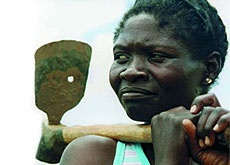
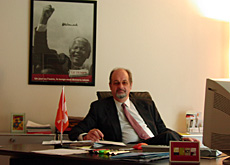
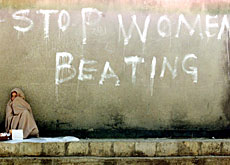
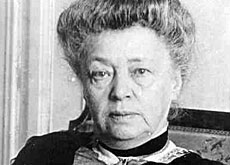
You can find an overview of ongoing debates with our journalists here. Please join us!
If you want to start a conversation about a topic raised in this article or want to report factual errors, email us at english@swissinfo.ch.